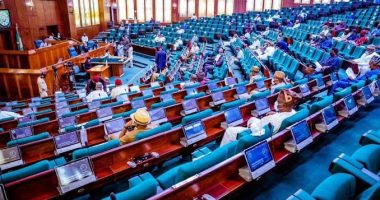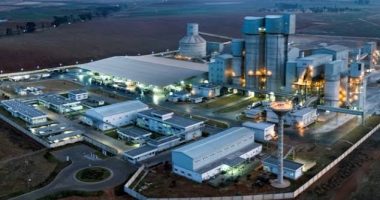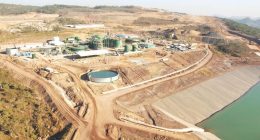As the curtain falls on 2024, Nigeria’s mining sector stands at a critical juncture, reflecting a year of progress, challenges, and aspirations. The journey towards economic diversification gained momentum, with bold reforms and an intensified focus on leveraging the nation’s vast solid mineral resources. Yet, the year also underscored the complexities of achieving sustainable growth in an industry fraught with governance, environmental, and security challenges.

This reflective piece revisits the key milestones of 2024 and explores what lies ahead for Nigeria’s mining sector.
A Year of Strategic Reforms
In 2024, the federal government took significant steps to revitalise the mining sector, which had long been overshadowed by oil. The Ministry of Solid Minerals Development, under the leadership of Dr Dele Alake, rolled out a comprehensive reform agenda.
These reforms included:
- Lifting Mining Bans: The removal of mining bans in Zamfara and other regions reopened economic opportunities while simultaneously placing a spotlight on the need for robust security measures.
- Infrastructure Development: Investments in road networks and power supply to mining-rich areas were initiated, with international partnerships playing a crucial role in funding these projects.
- Policy Enhancements: Updated mining laws introduced stricter enforcement mechanisms to curb illegal mining and ensure environmental compliance.
The reforms also emphasised stakeholder collaboration, with local governments and traditional rulers playing pivotal roles in ensuring community engagement and monitoring.
The Rise of Lithium and Strategic Minerals
A major highlight of the year was the discovery and development of high-grade lithium deposits, particularly in Zamfara and Niger states. Lithium, often referred to as “white gold,” has become a cornerstone of global clean energy transitions, driving demand for electric vehicles and renewable energy storage solutions.
Nigeria’s lithium reserves, among the highest quality globally, positioned the country as a critical player in the global supply chain. In 2024, lithium exploration and export activities accelerated, attracting foreign investors and generating significant revenue.
Gold mining also gained traction, but its association with illegal activities and banditry dampened its full potential. Strengthening regulatory oversight to ensure gold’s legal and ethical sourcing remains a top priority moving into 2025.
Challenges Facing the Mining Sector
Despite notable progress, the year highlighted persistent challenges that must be addressed for the sector to thrive sustainably.
- Insecurity: The mining sector in states like Zamfara and Niger continues to grapple with banditry and criminal networks. These actors exploit mineral-rich areas, smuggling resources and destabilising communities.
- Illegal Mining: Artisanal and illegal mining remains rampant, depriving the government of revenue and causing environmental degradation. The sector struggles to integrate these miners into formal systems.
- Environmental Concerns: Mining activities, particularly artisanal operations, have left scars on the landscape. Issues such as deforestation, water pollution, and soil degradation have spurred calls for stricter environmental management policies.
- Social Impacts: A growing trend of school-age children abandoning education for mining work raises concerns about the socio-economic future of mining communities. The loss of educational opportunities could perpetuate cycles of poverty.
Local Communities and Shared Prosperity
One of the year’s key lessons was the importance of community engagement in the mining sector. Ensuring that local populations benefit from mining activities has been a recurring theme in 2024.
Efforts to share mining revenues with host communities have gained traction, with community development agreements becoming mandatory for mining companies. These agreements include commitments to build schools, healthcare facilities, and infrastructure, fostering goodwill and reducing community unrest.
However, achieving these goals requires consistent enforcement and monitoring to ensure that mining companies fulfil their obligations.
The Role of Technology in Mining
Technology emerged as a game-changer for Nigeria’s mining sector in 2024. Innovations such as satellite mapping, blockchain for resource tracking, and AI-driven exploration tools have made mining operations more efficient and transparent.
Satellite technology has been particularly effective in monitoring illegal mining activities, enabling authorities to track and dismantle criminal networks. Blockchain has also played a pivotal role in ensuring the traceability of minerals, addressing concerns about “conflict minerals” entering global supply chains.
As Nigeria enters 2025, the adoption of cutting-edge technologies will be crucial in enhancing the sector’s productivity and competitiveness.
Towards a Sustainable Mining Sector
The year 2024 underscored the importance of balancing economic growth with environmental sustainability. The government’s renewed focus on eco-friendly mining practices, supported by international development partners, has laid a foundation for sustainable progress.
Key priorities for the future include:
- Environmental Rehabilitation: Reclaiming degraded land and restoring ecosystems in mining areas must be prioritised.
- Formalising Artisanal Mining: Integrating artisanal miners into formal frameworks through training, licensing, and incentives will reduce illegal mining and boost government revenue.
- Value Addition: Establishing processing plants for minerals such as lithium and gold will maximise economic benefits and create jobs.
- Capacity Building: Training programmes for local workers will ensure that mining activities contribute to human capital development.
A Vision for 2025 and Beyond
As Nigeria concludes 2024, the mining sector offers a beacon of hope for economic diversification. While challenges persist, the progress made this year has set the stage for a more prosperous and sustainable future.
The government’s commitment to fostering a transparent, inclusive, and environmentally responsible mining sector will be critical in unlocking its full potential. With robust policies, community engagement, and international collaboration, Nigeria’s mining sector can become a model for sustainable resource management.
As the country enters 2025, the mining sector promises to play an even greater role in shaping Nigeria’s economic narrative—one that moves beyond oil and embraces the wealth beneath its soil.













